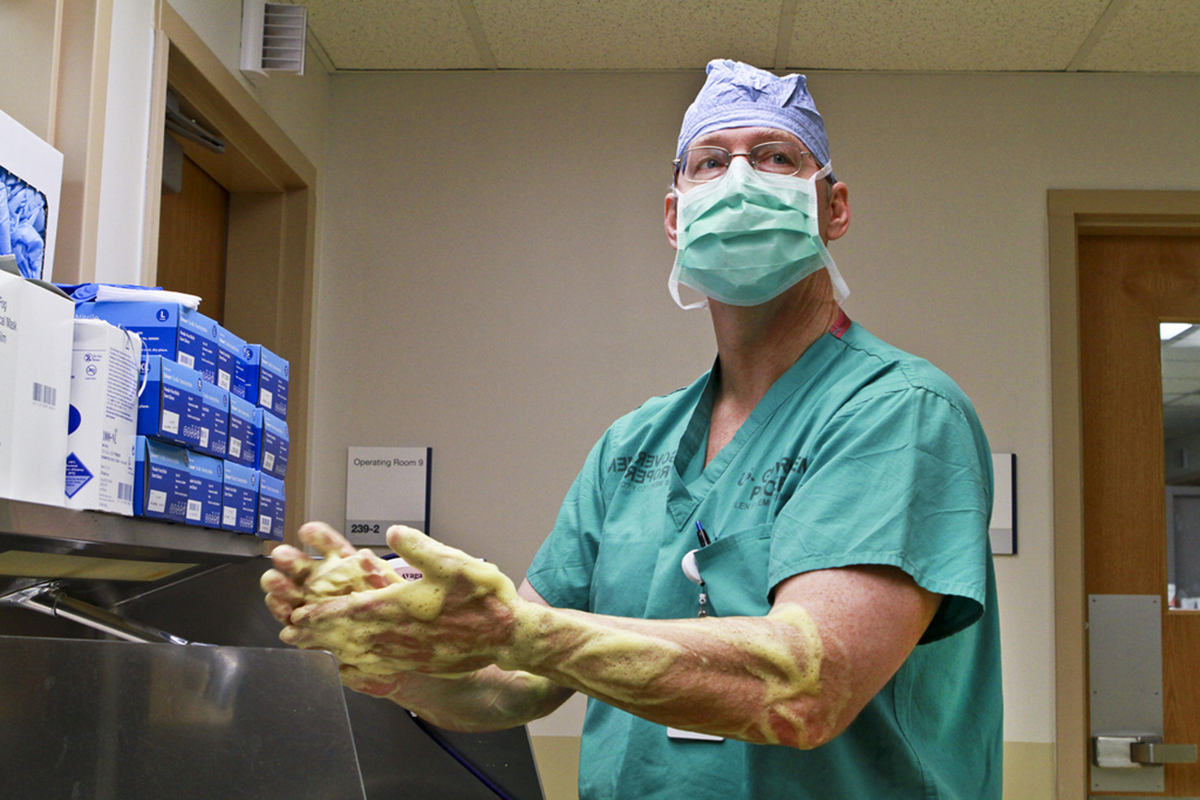Table of Contents
Gloves and gowns are universally required in modern, well-equipped surgical theaters. They definitely reduce the spread of infection. They are not universally help in the intensive care unit (ICU) or patient rooms, however, and having nurses and visitors wear gloves and gowns is not known to prevent infections with either MRSA (methicilin-resistant staph) or VRE (vancomycin-resistant enterococcus).

It is not just gowns and gloves that can protect patients. Almost any article of clothing can be manufactured in a way that reduces the risk of infection when people are particularly vulnerable. However, some common health practices most of us assume help stop the spread of infection really don't.
Covering a cough doesn't actually stop the spread of infection.
This article is not suggesting that you shouldn't cover your mouth when you cough. That's just polite. You should not spray little droplets of your bodily fluids on people or objects nearby you. Coverying your mouth with you hand does not, as most of us would expect, stop the transmission of disease. That is due to the fact that most of the droplets of fluid expelled by a cough are just 1 micron (one millionth of a meter, about 1/10,000th of an inch) wide. These tiny particles leak through your fingers or even a handkerchief or a Kleenex tissue, floating in the air until they come in contact with a surface. The microorganisms that cause tuberculosis or flu can easily ride in a sphere of liquid just 1 micron across.
Wearing a face mask, on the other hand, reduces the risk of catching an infection.
When Chinese scientists studied the transmission of the bird flu virus in 2009, they discovered that unifected passengers seated in the same airplane cabin as infected passengers for up to 10 hours did not catch the virus if they wore face masks. Why should covering your mouth not stop the transmission of the virus if you are sick while wearing a face mask does if you are well?
The answer is that it takes more than just one virus, or 10 viruses, or 100 viruses to cause an infection. The immune system can defeat a small number of viruses so that symptoms never occur. It cannot overcome a massive "invasion" of the virus. Wearing a face mask keeps the number of virus particles actually getting through to a very low level so flu symptoms are avoided.
See Also: Doctor Suicides: A Growing Epidemic
The single most effective method of stopping the spread of infections is washing hands.
Overall, more effective than plastic gowns, antimicrobial gloves, and face masks is the simple act of washing hands. Protective gear is a must in the OR, but hand washing is a necessity anywhere medicine is practiced. Gloves don't really protect against infection unless they are changed after every patient contact. Putting used gloves in a box of clean gloves can contaminate the entire box.
- Scott M. Should scrubs be worn only inside hospitals to limit the spread of germs? Newsworks. January 15, 2015. http://www.newsworks.org/index.php/local/the-pulse/77247-should-scrubs-be-worn-inside-hospitals-only-to-limit-the-spread-of-germs Accessed 8 April 2015.
- Zayas G, Chiang MC, Wong E, MacDonald F, Lange CF, Senthilselvan A, King M. Effectiveness of cough etiquette maneuvers in disrupting the chain of transmission of infectious respiratory diseases. BMC Public Health. 2013 Sep 8. 13:811. doi: 10.1186/1471-2458-13-811.PMID: 24010919.
- Photo courtesy of Walt Stoneburner via Flickr: www.flickr.com/photos/waltstoneburner/3373057519
- Photo courtesy of Army Medicine via Flickr: www.flickr.com/photos/armymedicine/7093478345


Your thoughts on this